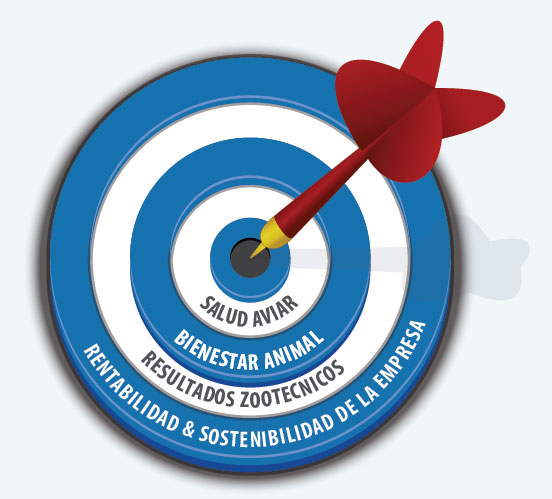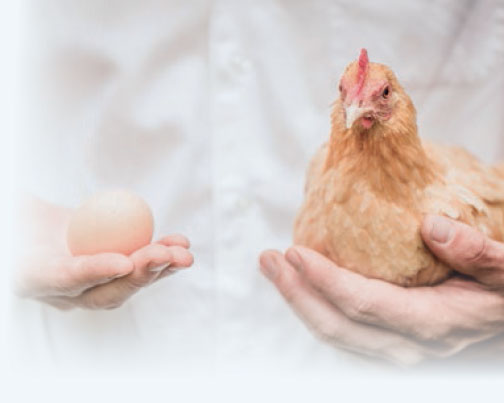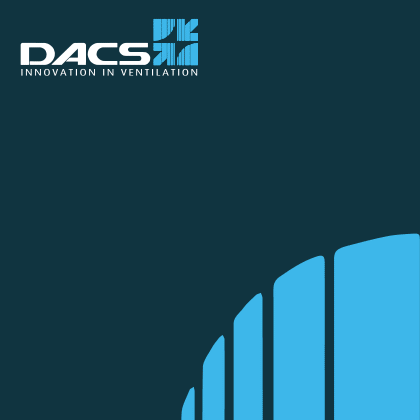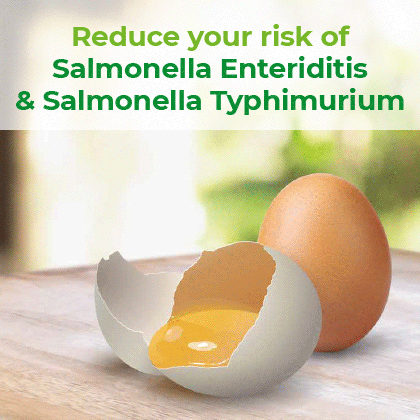Content available at: Español (Spanish)
This work is a summary of concepts and strategies that serve to establish and implement an effective biosecurity program. This summary aims to present a perspective to develop and maintain a solid and effective biosecurity culture that will help guarantee the productivity, competitiveness and sustainability of production companies of today and the future. The demand for poultry products continues to grow worldwide due to its popularity, convenience, nutritional value and reasonable price. In fact, table eggs and chicken meat are products of the basic food basket in many countries of the world. At the same time, poultry farming has entered a new era where it faces challenges posed by new business trends, consumer preferences, regulatory demands and the pressing need to improve disease prevention. Likewise, the pressure to eliminate and / or reduce the use of antibiotics and protect animal welfare are and will continue to induce gradual improvements in the largest production systems worldwide. Faced with the threat of multiple diseases that can have a severe economic impact, businessmen and professionals in the poultry industry are obliged to give priority to the design and execution of biosafety programs that will allow them to ensure the profitability and future of their companies.
The question then is whether these products will be produced by national companies or if the needs of consumers will be met by importing imported products from free countries and industries with better biosecurity standards.
Biosecurity is an investment
Biosecurity is defined as the set of production standards and practices designed to prevent the entry and spread of pathogens. This is the first barrier and the most important defense against avian diseases. Biosecurity is an investment that serves as a foundation for producers to preserve the health and well-being of birds and obtain the best possible zootechnical results and economic returns.

Figure 1. Biosecurity is an investment to achieve objectives
Biosecurity is an investment to achieve objectives.
As will be described in this work, the establishment and implementation of a biosafety program requires investment in both physical and human resources. Understandably, this investment is justified by the degree of risk present and the expected return of capital under various field conditions. Generally speaking, a strong and effective program has the following benefits:
- Guarantee productivity (achieve zootechnical and economic objectives)
- Comply with projections for the sale and distribution of products, avoiding failures in the supply of products and loss of markets
- Comply with quality and control standards
- Meet the requirements of domestic and / or export customers
- Avoid losses due to diseases, premature batch elimination, quarantines and prolonged periods of sanitary rest
- Reduce costs by avoiding or reducing the use of treatments. It is difficult to establish the specific cost-benefit of each conceptual, structural or operational biosecurity measure under various production conditions and field challenges.

Unquestionably commercial poultry farming in an industry that continues to evolve by incorporating increasingly advanced technology in the areas of management, nutrition and accommodation; however, protecting bird health or preventing disease is a priority to achieve the expected benefits. Consequently, biosecurity is not purely a technical area, but is one of the pillars of any production system to achieve the maximum return on investments made in other areas.
Program levels
Demand for poultry products and growing demands from consumers and regulatory agencies, coupled with the imminent threat of diseases such as avian influenza, require poultry companies to invest in establishing and implementing an effective biosecurity program. Biosecurity is essential to maintain the health of the batches, achieve the expected production objectives and ensure the profitability and sustainability of companies today and in the future. The success of the program depends on the extent to which it is part of the company culture and the continuous training of its personnel. The establishment of a biosafety culture is achieved when each and every member of the company understands it, accepts it as their responsibility and diligently fulfills it by carrying out countless daily activities. To guarantee the effectiveness of the program, it must be subject to continuous audits in order to identify implementation failures, deficiencies in resources or training, and take immediate corrective actions. This should be a process aimed at finding opportunities for continuous improvement
As a part of the processes in poultry production today, diagnostic laboratories play an important role in conducting tests to determine the health status and immunity levels in birds and the compliance with quality standards. These analyzes also serve to evaluate the effectiveness of the biosafety program and aid in decision-making to maintain health and prevent the introduction of disease. Finally, and faced with current and future challenges, commercial poultry is and will continue to evolve and achieve continuous improvements in its production systems. Poultry producers have ceased to be “chicken and egg businesses” to become modern industries that produce healthy, nutritious, reliable and economic food for the world’s population.













